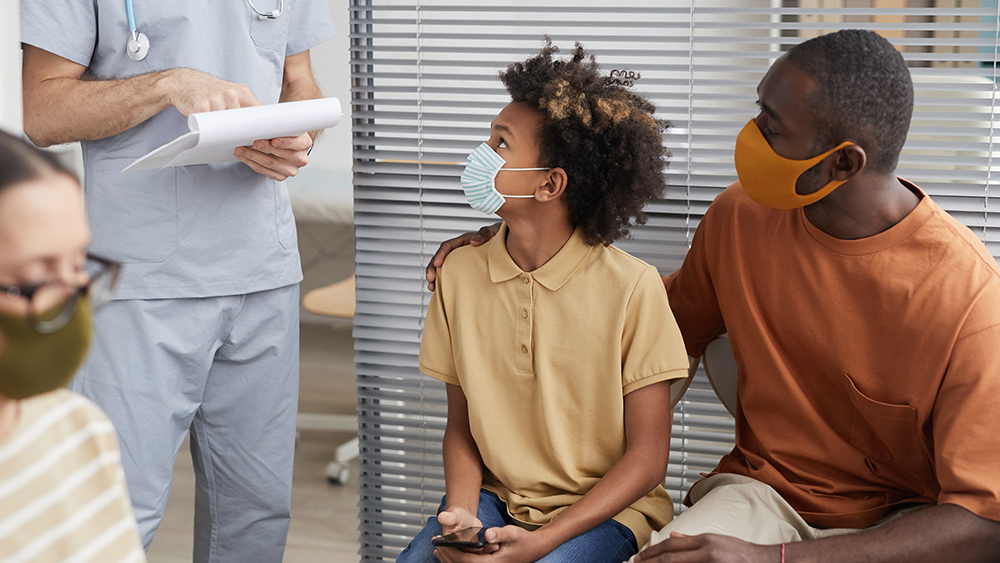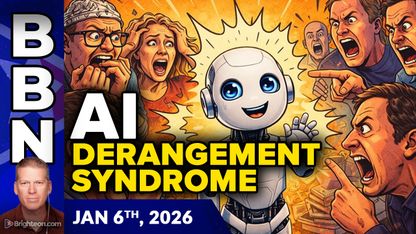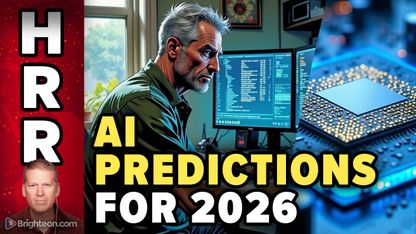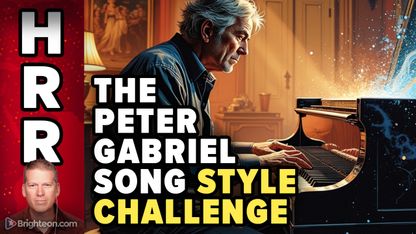
Are vaccines really safe?
Six hours into the conference, Dr. Eric Rubin, editor-in-chief of the New England Journal of Medicine, commented on how widespread the rollout of the coronavirus vaccine should be.
Rubin admitted that despite Big Pharma's insistence that coronavirus vaccines are safe and that they are key to ending the pandemic, it's impossible to find out how safe the vaccines are unless they're administered first. He added that this is usually the case for vaccines and their many side effects and rare complications.
While data suggests that the vaccine works and is considered safe, Rubin acknowledged that doctors are worried about side effects that still haven't been measured accurately – like the heart condition myocarditis.
A person with myocarditis has an inflamed myocardium or heart muscle (the muscular layer of the heart wall). This muscle is responsible for contracting and relaxing, and pumps blood in and out of the heart and to the rest of your body.
When the myocardium becomes inflamed, it becomes ineffective at pumping blood. The condition causes symptoms like an abnormal heartbeat, chest pain and breathing difficulty.
In extreme cases of myocarditis, the patient may experience blood clots that can cause a heart attack or stroke, damage to the heart with heart failure and even death.
Children shouldn't be vaccinated to protect adults
The committee voted 17 to 0 with one abstention in favor of recommending the emergency use of Pfizer's COVID-19 vaccine in young children.
The one abstention came from Dr. Michael Kurilla, who said he "would have preferred a more nuanced approach" instead of a blanket authorization for young children.
Dr. Cody Meissner, a pediatrician at Tufts Medical Center, another committee member, expressed his concerns over the possibility of a vaccine mandate for children. He added that if the committee members vote "yes," the states might mandate the administration of the Pfizer vaccine for children to go to school, which he thinks would be a bad idea. (Related: FDA trying to hide data showing Pfizer’s covid “vaccine” is seriously injuring children.)
Dr. James Hildreth, a temporary committee member, also voiced his concerns about the number of children who have already been infected with the coronavirus. According to estimates, almost 40 percent of children already had some form of immunity to the disease.
Hildreth noted the irony in vaccinating children to protect the adults when the opposite would be the wiser option. If 30 million children already have some form of immunity, they've already done their part to help achieve herd immunity in the county.
Now, health experts should be focusing on convincing more adults to protect the children, added Hildreth.
Back in September, Pfizer announced that the vaccine is safe for children aged five to 11. However, outside experts warned that the clinical study did not produce enough data.
The Pfizer vaccine for younger children is a smaller dose than the one given to those aged 12 and older – 10 micrograms of mRNA and 30 micrograms, respectively. The full vaccination series includes two doses given three weeks apart.
The children's doses will come in vials with an orange cap and an orange label while the doses for adults and teens have a purple cap and a purple label.
With the passing vote of the VRBPAC, the process for getting vaccines to young children is in progress. Once the FDA leaders approve the decision, the Centers for Disease Control and Prevention's (CDC) independent advisory will meet on Nov. 2 and 3 to decide if a vaccine will be recommended for this age group.
The final decision will be made by FDA leaders within the next few days. If authorized, the move would make nearly the entire U.S. population eligible for a coronavirus vaccine, with only children aged four and younger ineligible.
Visit Immunization.news for more updates on coronavirus vaccines.
Sources include:
Please contact us for more information.























